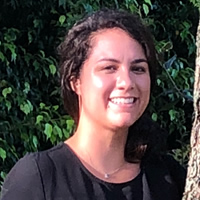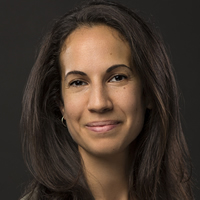The National Poverty Fellows (NPF) Program is a federal government-university partnership administered by IRP seeking to build the capacity of postdoctoral researchers conducting high-quality policy-relevant research on poverty and economic mobility in the United States.
As part of the program, fellows visit the Institute for Research on Poverty at UW–Madison as scholars in residence two times per year, are paired with a senior IRP research mentor and an outside policy mentor for the duration of their fellowship, and receive support to participate in academic conferences throughout the year.
Calls for applications are released each fall for fellowships that begin the following academic year.
Current Call
No posts currently available to show
Learn more about the NPF program
Current National Poverty Fellows
Austin Conner
Position title: National Poverty Fellow
Austin Conner is a National Poverty Fellow for 2024–2026 in residence at the Office for the Assistant Secretary for Planning and Evaluation (ASPE). Conner completed her PhD in Social Welfare with a Graduate Minor in Applied Statistics at the University of Mississippi in August 2024. She also holds a Master of Social Work degree with a clinical focus from the University of Mississippi. Her current research interests include social capital, civic participation, political participation, race, and policy. Broadly speaking, Conner is interested in how individuals cultivate and use social capital to enhance their overall well-being. Her research interests emanate from her engagement in community-participatory action research and advocacy work that empowered Mississippians to vote. Conner also applies her previous practice experience as a School Attendance Officer to her approaches to research. Conner is mentored by IRP Affiliate Amanda Geller and Sarah Charnes from Westat.
Conner was a 2023–2024 IRP Professional Development Training Participant.
Clay Fannin
Position title: National Poverty Fellow
Clay Fannin is a National Poverty Fellow for 2024–2026 in residence at the Office of the Assistant Secretary for Planning and Evaluation (ASPE). He completed his Ph.D. in Public Administration from Syracuse University where he specialized in social policy and public finance. His research applies quasi-experimental methods to public and administrative data to evaluate how the design and implementation of U.S. social programs affect participants. His core research interests include the determinants of program participation, the consequences of administrative burden, and the relationship between social policy and labor market outcomes. In recent work, Fannin has investigated how drastic administrative changes to nutrition assistance programs during the COVID-19 pandemic impacted program outcomes. Before pursuing his doctoral studies, he was a Policy Analyst at The Council of State Governments and earned an M.P.P. and a B.S. in Economics from the University of Kentucky. Fannin is mentored by IRP affiliate Carolyn Heinrich and Mina Addo at MDRC.
Caitlin Lowery
Position title: National Poverty Fellow
Caitlin Lowery is a National Poverty Fellow for 2023–2025 in residence in the Division of Data and Improvement (DDI) at the Office of Planning, Research and Evaluation (OPRE). Lowery completed her PhD in Nutrition with a minor in Epidemiology at the Gillings School of Global Public Health at the University of North Carolina at Chapel Hill. She also holds an MSPH in International Health from Johns Hopkins University. Her research interests include policy approaches to prevent chronic disease, promote health and well-being, and reduce health disparities. Lowery has contributed to the evaluation of nutrition-related policies and programs, including the Philadelphia Beverage Tax and a large fruit and vegetable incentive program in North Carolina. Prior to her graduate work, she served as a Peace Corps Volunteer in the Republic of Georgia. Lowery is mentored by IRP Affiliate Yang Wang and Amelie Hecht, Senior Social Scientist at the Lab @ DC.
Twitter: @caitlinmlowery
Shoshana Shapiro
Position title: National Poverty Fellow
Shoshana Shapiro is a National Poverty Fellow for 2023–2025 in residence in the Office of Community Services in the Administration for Children and Families. She completed her PhD in Public Policy and Sociology at the University of Michigan. Shapiro’s research interests include the geography of poverty and the human services safety net, with a focus on policy research to support access to the safety net for all Americans. Her dissertation research examined equity in access to the nonprofit human services safety net using quantitative analysis of national administrative data and mixed methods. Shapiro is originally from Upstate New York and has previously worked in the Federal Office of Rural Health Policy and as a middle school English teacher. Shapiro is mentored by IRP Affiliate Scott Allard and Rebekah Selekman, Senior Researcher at Mathematica.
Samantha Steimle
Position title: National Poverty Fellow
Samantha Steimle is a National Poverty Fellow for 2024-2026 in residence at the Office of the Assistant Secretary for Planning and Evaluation (ASPE). She completed her PhD in Psychology at Georgetown University, where she also obtained her Masters in Public Policy. Broadly, her research interests involve investigating ways programs and policies can best support the economic and psychological well-being of low-income parents and children. Steimle’s dissertation work focused on how different cash supports delivered to families during the pandemic related to their food insecurity and psychological distress, which was supported by a grant from the Horowitz Foundation. Prior to graduate school, she worked as a social policy researcher at MDRC and earned her B.S. in Psychology from Fordham University. Steimle is mentored by IRP affiliate Lawrence Berger and Marla McDaniel, Senior Fellow Center on Law, Human Services and Population at the Urban Institute.
Past National Poverty Fellows
Mina Addo
Mina Addo was a National Poverty Fellow from 2021 to 2023 in residence at the Office of Planning, Research and Evaluation. Addo completed her PhD in social welfare at the University of Pennsylvania School of Social Policy and Practice (SP2). She is a qualitative researcher with experience conducting policy and program evaluations, survey design, in-depth interviews, and focus groups. Addo’s research interests include precarious work and the intersection between economic insecurity, health, and well-being. At SP2, Addo collaborated on the development of the Partnership for Social Mobility and Impact Fund, a research-driven initiative to identify and scale economic mobility solutions in Philadelphia and beyond. Prior to her doctoral work, Addo held positions at Urbane Development, where she led studies on city-led financial capability and economic development initiatives, and Citizens Budget Commission, where she contributed to studies on Medicaid redesign and municipal fire and EMS services. She has also served as a health and education policy adviser in the U.S. Senate and provided public policy and communications counsel to nonprofit organizations. Addo was mentored by IRP Affiliate J. Michael Collins and Christina Yancey, Chief Evaluation Officer at the U.S. Department of Labor. She is currently a Research Associate at MDRC.
Colin Campbell
Colin Campbell was a National Poverty Fellow in residence at the Office of the Assistant Secretary for Planning and Evaluation from 2014 to 2016. Campbell received his Ph.D. in sociology from the University of North Carolina, where he was a fellow in the Royster Society of Fellows. His dissertation examined the effect of dropping out of high school on later life poverty, the influence of early life family characteristics on educational achievement in low-income households, and the social determinants of public support for anti-poverty programs. His research focuses on poverty persistence and mobility out of poverty, the lasting effects of childhood poverty, and attitudes toward anti-poverty policies. Campbell served as an Associate Editor of Social Forces from 2010 to 2014. He is currently Associate Professor of Sociology at East Carolina University.
Sarah Charnes
Sarah Charnes was a National Poverty Fellow from 2022 to 2024 in residence in the Division of Data and Improvement (DDI) at the Office of Planning, Research and Evaluation (OPRE). Sarah completed her Ph.D. in Public Policy and Management at the Daniel J. Evans School of Public Policy and Governance at the University of Washington. She also holds an M.A. in Applied Economics from Johns Hopkins University. Sarah’s dissertation investigated several facets of means-testing in the United States through the lens of public food assistance. Broadly speaking, her research interests center upon the efficacy of the social safety net. Sarah’s research interests were informed by topics with which she was engaged while working as an economist in the U.S. Department of the Treasury’s Office of Economic Policy prior to pursuing her doctorate. Charnes was mentored by IRP Affiliate Judith Bartfeld and Danielle Berman, Senior Evidence Analyst at the Office of Management and Budget. She is currently a Senior Research Associate at Westat.
Jennifer R. Daniels
Jennifer Daniels was a 2022–2025 National Poverty Fellow in residence in the Division of Economic Independence (DEI) at the Office of Planning, Research and Evaluation (OPRE). Daniels completed her Ph.D. in Urban Affairs and Public Policy in the Biden School of Public Policy and Administration at the University of Delaware. Her research interests include racial equity, poverty, and the provision and access to social welfare programs. Specifically, she is interested in the intersections of devolved policy authority and racial inequity in the policy process. Her dissertation research investigated state-level discretionary decision-making in the administration of SNAP and racial inequity in the receipt of benefits for able-bodied adults without dependents. Jennifer also holds a Master of Social Work degree and is engaged in diversity, equity, and inclusion work for various non-profit organizations. In 2021–2022, Daniels also worked as an Equity Fellow in the Office of Evaluation Sciences in the U.S. General Services Administration (OES). She assisted OES with defining the core elements of an equity-focused evaluation that included promoting awareness of processes for defining, measuring, evaluating, and communicating about equity among governmental partners. Daniels was mentored by IRP Affiliate J. Michael Collins and Erica Meade, Senior Policy Manager in the New Practice Lab at New America. Daniels is currently an Assistant Professor of Social Work at Morgan State University.
Nicole Deterding
Nicole Deterding was a National Poverty Fellow at the Office of Planning, Research and Evaluation from 2015 to 2017 and was mentored by IRP Affiliate Sara Goldrick-Rab. Deterding earned her Ph.D. in Sociology and Social Policy from Harvard University. Her work examines the relationship between education and the labor market for disadvantaged students. She is particularly interested in the role of the growing for-profit sector in educating returning students, which she examined in her dissertation, entitled “Start, Start Again: The College Pathways of Economically-Vulnerable Mothers.” Prior to beginning her doctoral studies, Nicole worked on large implementation and impact studies of higher education interventions as a Research Associate at The Urban Institute and earned a Master’s Degree in Education Policy Studies from The George Washington University. Deterding is currently a Lead Social Science Research Analyst at the Office of Planning, Research and Evaluation in the U.S. Department of Health and Human Service’s Administration for Children and Families.
Gwendolyn Donley
Gwendolyn Donley was a National Poverty Fellow from 2022 to 2024 in residence in the Office of Community Services in the Administration for Children and Families. Donley completed her PhD in Epidemiology and Biostatistics from Case Western Reserve University, where she developed skillsets in quantitative and qualitative methodologies working in the space where research meets policy and practice. Her doctoral research focused on residential instability, food environments, and experiences of COVID-19 among Black pregnant and postpartum women. Underlying themes connect all of her work: poverty, equity in resources and environments, racial disparities in health, and individual/community-level lived experiences. Before pursuing her PhD, Gwen received her Master of Science in Public Health from the University of Eastern Finland, where she studied childhood stress and late-life dementia risk. Donley has also been involved with extensive work focused on equity in food systems, including food access, emergency food assistance, supplemental food assistance programs, and nutrition policy. Donley was mentored by IRP Affiliate Christine Durrance and Emma Monahan, Senior Researcher at Chapin Hall at the University of Chicago. Donley is currently a Data Scientist in the U.S. Department of Health and Human Services, Administration for Children and Families, Office of Community Services.
Meredith Dost
Meredith Dost was a National Poverty Fellow for 2023–2025 in residence at the Office of the Assistant Secretary for Planning and Evaluation (ASPE). Meredith completed her PhD in Government and Social Policy from Harvard University, where she studied American politics. Her research interests include the administrative state and governance, political behavior, and inequality. Dost studies how interactions with the administrative state affect the political efficacy and behavior of both the recipients of means-tested government programs and of the general public. In her dissertation work, she examines how administrative burdens of Medicaid shape the likelihood of voting, leveraging the variation in program administration across the states. Before pursuing her PhD, she worked at Pew Research Center and earned a B.A. in Public Policy and Hispanic Studies from the College of William & Mary. Dost was mentored by IRP Affiliate Max Besbris and Julia Gelatt, Associate Director for U.S. Immigration Policy Program at the Migration Policy Institute.
Lincoln Groves
Lincoln Groves was a National Poverty Fellow at the Office of the Assistant Secretary for Planning and Evaluation from 2015 to 2018 and was mentored by IRP Affiliate Timothy Smeeding. Groves has an M.A. in Applied Economics from Johns Hopkins University and a Ph.D. in Public Administration from Syracuse University. His research interests include human capital development of young adults at-risk of living in poverty, as well as the role of public policy in facilitating more favorable outcomes for these groups. In his dissertation, he investigated how three large-scale social insurance programs—AFDC/TANF, Medicaid, and Social Security’s Student Benefit Program—affected the educational attainment and work experience of vulnerable young adults. Before his graduate studies in Syracuse, Groves worked as an economic research analyst in Washington, DC—with both the government (USDOJ, Antitrust Division) and a private sector consulting firm (MiCRA, Inc.)—and was a Peace Corps volunteer in Bulgaria. Groves is currently a Senior Manager responsible for analytical education as the SAS Institute, Inc.
Melody Harvey
Melody Harvey was a National Poverty Fellow at the Office of Planning, Research and Evaluation from 2018 to 2020 and was mentored by IRP Affiliate J. Michael Collins. Harvey earned her Ph.D. at the RAND Pardee Graduate School. She is a social scientist who studies how public policies affect financial capability among economically vulnerable populations. Her current research encompasses three main domains: (1) assessing the effects of K–12 financial education policies on youth and young adults’ financial outcomes across different socioeconomic groups; (2) investigating how financial regulations affect alternative financial services use; and (3) examining heterogeneities in consumer policy implementation. Harvey is currently an Assistant Professor of Consumer Science at University of Wisconsin–Madison.
Amelie Hecht
Amelie Hecht was a National Poverty Fellow in residence at the Office of Planning, Research, and Evaluation (OPRE) from 2020 to 2022. She was mentored by Professors Judith Bartfeld and Barbara Wolfe, both IRP Affiliates. Hecht’s research interests center around health and nutrition policy, with an emphasis on disparities by income and race/ethnicity. Her dissertation research explored the implementation and impact of the Community Eligibility Provision of the National School Lunch Program, which allows high-poverty schools to serve universal free meals. Hecht completed her PhD in Health Policy and Management at the Johns Hopkins Bloomberg School of Public Health. She currently works as a Senior Social Scientist with the Lab @ DC.
Maretta McDonald
Maretta McDonald was a National Poverty Fellow from 2022 to 2024 in residence at the Office of the Assistant Secretary for Planning and Evaluation (ASPE). McDonald was a 2021–2022 American Sociological Association (ASA) Minority Fellow and a member of the inaugural 2021–2022 cohort of ASA/NSF Doctoral Dissertation Improvement Grant awardees. Her current research interests are racial inequality, criminology/criminal justice, family, gender, spatial analyses, and public policy. Her dissertation, “Examining Child Support Enforcement in the Deep South: An Analysis of Race, Gender, Class, and Place,” examines the association of the agency’s policies and practices with macrolevel spatial and racial inequality, which brings all these areas into conversation with each other. McDonald also brings a practitioner’s lens to her research. She worked as a Child Support Enforcement officer and supervisor before entering graduate school. McDonald earned her Ph.D. in sociology at Louisiana State University. McDonald was mentored by IRP Affiliate Sarah Halpern-Meekin and Lauren Antelo, Senior Advisor in the Immediate Office of the Assistant Secretary at the Administration for Children and Families. She currently works as a Social Science Analyst in the U.S. Department of Health and Human Service’s Office of the Assistant Secretary for Planning and Evaluation.
Kathleen Moore
Kathleen Moore was a National Poverty Fellow at the Office of Planning, Research and Evaluation from 2017 to 2019 and was mentored by IRP Affiliate Daniel Meyer. Moore has a Ph.D. in Public Policy and Management from the University of Washington Evans School of Public Policy and Governance and Masters of Public Administration from the University of Utah. Her research interests include low-income housing and homelessness policy. Moore’s dissertation estimated discrimination rates for Housing Choice Voucher (HCV) holders through a multi-city online experiment. Moore is currently a Management Analyst at the Office of Planning, Research, and Evaluation in the U.S. Department of Health and Human Service’s Administration for Children and Families.
Melinda Petre
Melinda Petre was a National Poverty Fellow at the Office of Planning, Research and Evaluation from 2014 to 2015 and was mentored by IRP Affiliate Christopher Taber. Petre earned her Ph.D. in economics from the University of Texas at Austin. Her dissertation focused on the returns to cognitive and noncognitive skills in different labor market contexts, such as employer learning about these skills and skills as an explanation of the racial wage gap. She is interested in researching policies that help to reduce poverty and inequality by developing skills and closing gaps from an early age. Petre is currently a lecturer in economics at Dartmouth College.
Megan Reid
Megan Reid was a National Poverty Fellow at the Office of Planning, Research and Evaluation from 2015 to 2018 and was mentored by IRP Affiliate Lawrence Berger. Reid earned her Ph.D. in sociology from the University of Texas at Austin and worked as a Project Director at the National Development and Research Institutes before beginning her position as a National Poverty Fellow. Her research focuses on social inequalities, families, housing, and disaster. In her dissertation, she focused on analyzing the experiences of people displaced by Hurricane Katrina and developed the concept of temporal domination to explain how time structures social inequalities. In one project, she focuses on understanding parenting and partnering among low-income Black couples in New York City. Reid is currently a Social Science Research Analyst at the Office of Planning, Research, and Evaluation in the U.S. Department of Health and Human Service’s Administration for Children and Families.
Dianna Ruberto
Dianna Ruberto was a 2023–2025 National Poverty Fellow in residence at the Office for the Assistant Secretary for Planning and Evaluation (ASPE). She earned her PhD in Urban Affairs and Public Policy from the Biden School of Public Policy and Administration at the University of Delaware. Ruberto conducts critical community-engaged research about the experiences and agency of Black low-income populations in urban policy processes. Her research interests include racial politics, citizen participation, urban development, and arts and cultural policy. Her dissertation, “’We are the ones that drive the culture’: Black Agency in Market-Driven Creative Placemaking Practices,” used interpretive and participatory research approaches to investigate several dimensions of Black stakeholder experiences and agency in Wilmington, Delaware’s creative district. She was an APPAM Equity and Inclusion Fellow (2021–2022), Publicly Active Graduate Education (PAGE) Fellow for Imagining America (2018–2019) and was a Graduate Community Engagement Scholar at the University of Delaware. Ruberto was mentored by IRP Affiliate Jamila Michener and Gabrielle Newell, U.S. Department of Health and Human Services, Administration for Children and Families.
Twitter: @diannanotdiana
Amber B. Sansbury-Scott
Amber B. Sansbury-Scott is a National Poverty Fellow for 2024–2026 in residence in the Division of Data and Improvement (DDI) at the Office of Planning, Research and Evaluation (OPRE). Sansbury-Scott completed her Ph.D. in Education, with a focus on Early Care and Education Policy from the College of Education & Human Development at George Mason University. She also holds an M.Ed. in Early Childhood Education Curriculum and Instruction for Diverse Learners from George Mason University. As a 2023-24 National Head Start Dissertation Grant funded study, Sansbury-Scott’s dissertation investigated how African American families and ECE teachers’ cultural values and race-related beliefs can strengthen family-teacher partnerships for young African American children’s racial identity development. Her scholarship broadly centers on parent voice, childcare decision-making for Black and immigrant families in the South, Head Start policy and program evaluation, and community-based participatory approaches to family engagement. Her research interests were shaped by her professional expertise in ECE systemic issues (e.g., stratification and barriers to school readiness) gained while working as a labor advocate and policy analyst for ten years prior to pursuing her doctorate. Sansbury-Scott is mentored by IRP affiliate Brenda Jones Harden and Amanda Coleman in the Division of Child and Family Development within the Administration of Children and Families in HHS.
Shomon Shamsuddin
Shomon Shamsuddin was a National Poverty Fellow at the Office of Planning, Research and Evaluation from 2014 to 2015 and was mentored by IRP Affiliate J. Michael Collins. Shamsuddin received his Ph.D. in Urban Planning and Policy from MIT. His research explores how housing and education policy affect urban inequality and socioeconomic mobility. His work also examines barriers to college access and degree completion for low-income and minority students, with attention to the role of information, behavioral qualities, and institutional characteristics. He also studies how housing authorities have used different approaches to redevelop public housing into mixed-income communities and the resulting impacts on families and neighborhoods. Shamsuddin is currently an Associate Professor of Social Policy in the Department of Urban and Environmental Policy and Planning at Tufts University.
Nicol Valdez
Nicol Valdez was a National Poverty Fellow in residence at the Office of Planning, Research, and Evaluation (OPRE) from 2019 to 2021 and was mentored by IRP Affiliate Jenna Nobles. Valdez received her Ph.D. in sociology from Columbia University. Her primary research focus centers around American stratification, immigration, and poverty with an emphasis on undocumented status. Her dissertation research, which was supported by the National Science Foundation, sets out to understand what it means to be a Mexican-American family, documented and undocumented, living in New York and North Carolina. Her work at OPRE focused on projects related to underrepresented groups’ access to social services, while also working with the Office of Refugee Resettlement on their annual survey and research methods for data collection.
KaLeigh White
KaLeigh White was a National Poverty Fellow for 2023–2025 in residence in the Division of Economic Independence (DEI) at the Office of Planning, Research, and Evaluation (OPRE). White earned her PhD in sociology at the University of Iowa. Her research interests include social inequality and equity, social policy, poverty alleviation, and quantitative methods. Her dissertation examined how experiences of social safety net program benefit conditions (e.g., work requirements) and sanctions (e.g., benefit cuts) are related to participant well-being, including material hardship, health, and sense of autonomy. In her work, she seeks to use data to inform policy and practice decisions and empower communities. She was a 2021–2022 awardee of the Behavioral Interventions Scholars (BIS) grant from OPRE and the U.S. Administration for Children and Families. Prior to graduate school, White gained practice-based experience in leadership positions focused on social service provision in rural communities. White was mentored by IRP Affiliate Katherine Michelmore and Heather Hahn, Associate Vice President of the Center on Labor, Human Services, and Population at the Urban Institute.
Sharon Wolf
Sharon Wolf was a National Poverty Fellow at the Office of the Assistant Secretary for Planning and Evaluation from 2014 to 2015. Wolf received her Ph.D. in Applied Psychology from New York University, where she held an Institute for Education Sciences Predoctoral Interdisciplinary Training Fellowship, as well as an American Psychological Foundation Elizabeth Munsterberg Koppitz Child Psychology Graduate Student Fellowship. Drawing on theories and methods from developmental and community psychology, her research explores how poverty and inequality affect the pathways through which key settings for children’s development—families and schools—influence children’s academic success. Her work involves conducting both descriptive research to shed light on key levers of change within families and schools, as well as designing and testing interventions aimed at improving these levers to inform anti-poverty and education policies. Her dissertation focused on the effects of a conditional cash transfer program in New York City on adolescents and their families, and considered how inequality in schools moderated program impacts on this anti-poverty initiative. Wolf is currently an Associate Professor in the Graduate School of Education at the University of Pennsylvania.
























